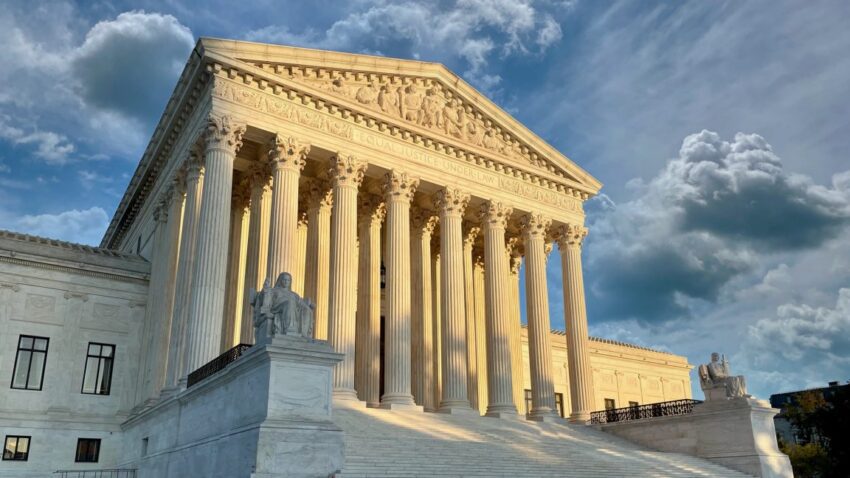
supreme court lets trump fire ftc democrat The Supreme Court has permitted President Trump to dismiss a Democratic member of the Federal Trade Commission (FTC), challenging a long-standing legal precedent regarding the removal of FTC commissioners.
supreme court lets trump fire ftc democrat
Background on the FTC and Its Commissioners
The Federal Trade Commission, established in 1914, plays a crucial role in protecting consumers and maintaining competition in the U.S. economy. The FTC is composed of five commissioners, who are appointed by the President and confirmed by the Senate. Traditionally, these commissioners serve staggered terms to ensure a degree of bipartisan representation and independence from political pressures.
Historically, the removal of FTC commissioners has been governed by a precedent set in the 1935 Supreme Court case, Humphrey’s Executor v. United States. In this landmark ruling, the Court determined that the President could only remove FTC commissioners for specific reasons: inefficiency, neglect of duty, or malfeasance in office. This ruling was intended to protect the integrity of the FTC from political interference, allowing it to operate independently in the public interest.
The Dismissal of Rebecca Kelly Slaughter
In March, President Trump exercised his authority to dismiss Commissioner Rebecca Kelly Slaughter, a Democrat who had been serving on the commission. In his notice of removal, Trump stated that Slaughter’s “continued service on the FTC is inconsistent with my administration’s priorities.” This dismissal raised immediate questions about the legality of the action, given the established precedent that restricts the President’s ability to remove FTC commissioners without cause.
Slaughter, who was appointed to the FTC in 2018, has been a vocal advocate for consumer protection and has pushed for stronger regulations on corporate practices. Her removal was seen by many as a politically motivated decision, aimed at reshaping the commission to align more closely with the Trump administration’s deregulatory agenda.
Legal Challenges and Lower Court Rulings
Following her dismissal, Slaughter challenged the legality of her removal in court. The case quickly made its way through the judicial system, with an appeals court reinstating her position just three weeks prior to the Supreme Court’s recent decision. The appeals court ruled that “the government has no likelihood of success on appeal given controlling and directly on point Supreme Court precedent,” effectively siding with Slaughter and reaffirming the protections established by the Humphrey’s Executor decision.
Implications of the Appeals Court Ruling
The appeals court ruling was significant not only for Slaughter but also for the broader implications it held for the independence of regulatory agencies. By reinstating her, the court underscored the importance of maintaining a nonpartisan approach to regulatory oversight, which is essential for ensuring fair competition and consumer protection in the marketplace.
The Supreme Court’s Intervention
However, on September 8, Chief Justice John Roberts granted a stay that temporarily blocked the lower court’s ruling against Trump. This intervention by the Supreme Court raised eyebrows and sparked debates about the potential ramifications for the FTC and similar regulatory bodies. The stay effectively allowed Trump to proceed with Slaughter’s dismissal while the Supreme Court considers whether to overturn the 90-year-old precedent established in Humphrey’s Executor.
Legal Experts Weigh In
Legal experts have expressed concern over the Supreme Court’s decision to intervene in this case. Many argue that overturning the precedent could set a dangerous precedent for the independence of regulatory agencies. If the President is granted broader authority to remove commissioners without cause, it could lead to increased political influence over agencies that are meant to operate independently.
Professor of Law at Harvard University, Noah Feldman, noted, “The ability of the President to remove commissioners at will could undermine the very purpose of these agencies, which is to act in the public interest rather than at the behest of political leaders.” This sentiment is echoed by numerous legal scholars and practitioners who advocate for the preservation of the protections established by Humphrey’s Executor.
Potential Outcomes and Their Impact
The Supreme Court’s decision to hear the case and potentially overturn the long-standing precedent could have far-reaching implications for the FTC and other independent regulatory agencies. If the Court rules in favor of Trump, it could pave the way for future Presidents to exert greater control over these agencies, potentially compromising their ability to function independently.
Impact on Regulatory Agencies
Should the Supreme Court decide to overturn the precedent, it may lead to a significant shift in how regulatory agencies operate. Commissioners could be removed for political reasons, leading to a lack of stability and continuity within these agencies. This could hinder their ability to enforce regulations effectively and protect consumers from unfair practices.
Additionally, the potential for increased political influence over regulatory agencies could deter qualified individuals from accepting appointments as commissioners. The fear of political retribution may discourage candidates from taking on these roles, ultimately leading to a less effective regulatory framework.
Reactions from Stakeholders
The decision to allow Trump to fire Slaughter has elicited strong reactions from various stakeholders, including consumer advocacy groups, legal experts, and political commentators. Many have expressed concern over the implications for consumer protection and the integrity of regulatory oversight.
Consumer advocacy organizations have been particularly vocal in their opposition to the dismissal. Groups such as the Consumer Federation of America and Public Citizen have issued statements condemning the move as an attempt to undermine the FTC’s ability to protect consumers. They argue that Slaughter’s removal reflects a broader trend of politicizing regulatory agencies, which could have detrimental effects on consumer rights.
Political Reactions
Political reactions to the Supreme Court’s decision have also been mixed. Democrats have criticized the move as an attack on the independence of regulatory agencies, while some Republicans have defended Trump’s authority to remove commissioners as a necessary exercise of executive power. This division reflects broader partisan tensions surrounding regulatory issues and the role of government in the economy.
Looking Ahead: The Future of the FTC
As the Supreme Court prepares to hear arguments regarding the legality of Trump’s dismissal of Slaughter, the future of the FTC hangs in the balance. The Court’s decision could either reaffirm the long-standing protections for FTC commissioners or open the door for greater political influence over regulatory agencies.
In the coming months, the legal community and stakeholders will closely monitor the developments in this case, as the implications could reshape the landscape of regulatory oversight in the United States. The outcome will not only affect the FTC but could also set a precedent for how other independent agencies operate in the future.
Ultimately, the Supreme Court’s decision will have lasting consequences for the balance of power between the executive branch and independent regulatory agencies. As the nation grapples with complex issues surrounding consumer protection, competition, and corporate accountability, the importance of maintaining an independent FTC cannot be overstated.
Source: Original report
Was this helpful?
Last Modified: September 23, 2025 at 9:37 pm
8 views















